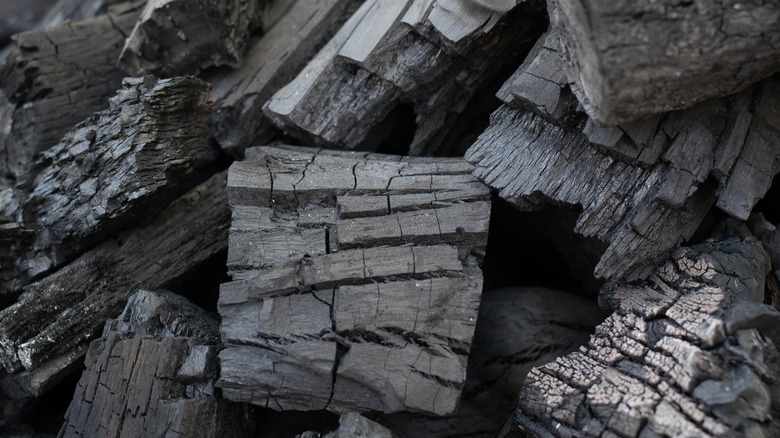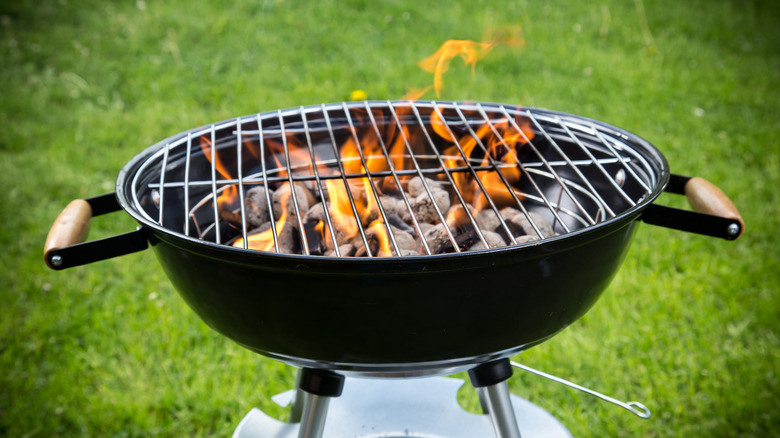What Is Charcoal?
The charcoal used for grilling is scrap wood or sawdust partially burned in very hot ovens until it becomes wood char, which is cooked thoroughly — but not to the point of disintegration. If you've ever made a fire, you've probably seen wood reach this state before turning to ash. Henry Ford pioneered the mass production of charcoal when he built a chemical plant to reclaim scrap wood created from the production of his Model Ts. Called Ford Charcoal, the product was sold exclusively in Ford's auto dealerships. Later, the facility was renamed for Edward G. Kingsford, a relative of Ford's, and the product was renamed Kingsford Charcoal.
To make charcoal, wood or wood scraps are put in either a kiln or dryers to suck out moisture, helping them bake efficiently; they are typically cooked in cast iron retort ovens. These cylindrically-shaped furnaces work with little oxygen, so the wood bakes more slowly. The more familiar pillow-shaped briquettes are made from charred granules that typically come from sawdust. These are mixed with anthracite coal, cornstarch, and borax. Nitrate is added to help the charcoal ignite more quickly, and lime helps it assume a white, ashy appearance to let grillers know the coals are hot enough. This mixture starts with the consistency of wet snow and goes on a conveyor belt, where it is stamped into briquettes. At this point, mesquite flavoring or lighter fluid is added to some products. Larger chunks of wood char are sold as lump charcoal.
Why people prefer charcoal grilling
The number of people who prefer lump over briquette charcoal is growing, and small firms are cropping up to offer new products to meet the demand. Although a little trickier to cook over because the pieces are not uniform in size, lump charcoal generally has fewer additives than briquette (or none) and won't impart a chemical flavor to your food. Some companies offer products coated in natural wax, rather than lighter fluid, for quick ignition.
Many people prefer charcoal grilling over gas and other types because of the taste it imparts. As charcoal is made from wood, much of that wood-smoked flavor imparts into meat, fish, vegetables, or anything else you're grilling from steam evaporating and the smoke from the fire. Grilling or smoking meat over wood also plays to our primal instincts. However, charcoal is also preferred by some for practical reasons: It's typically cheaper and burns hotter.
Interestingly, the state of Missouri is one of the leading producers of charcoal in the United States. According to the Missouri Department of Natural Resources, additional regulations surrounding charcoal production were enacted in the state legislature in 1998, despite the federal Clean Air Act being passed in 1970. By 2005, Missouri had significantly reduced the smoke surrounding charcoal kilns to reduce pollution.

